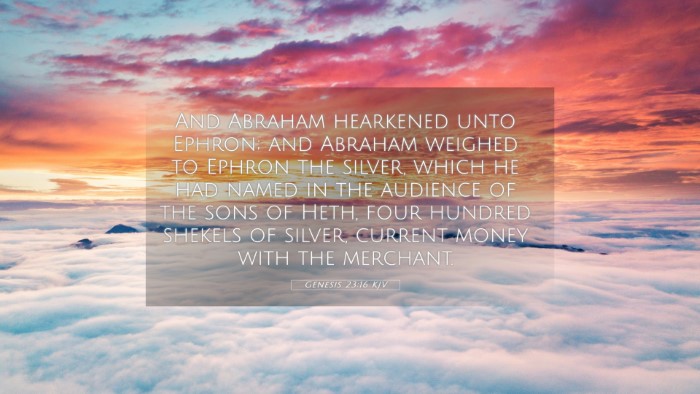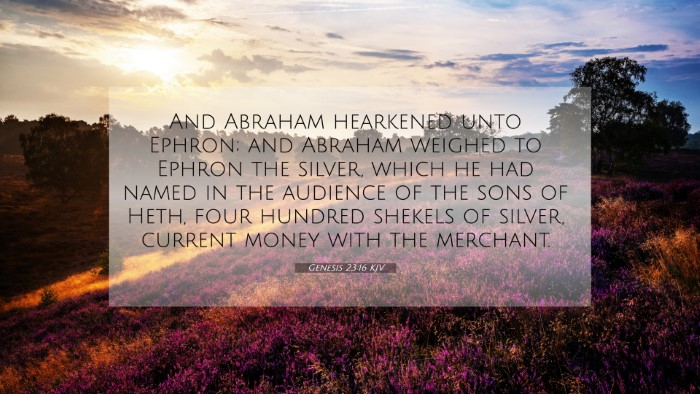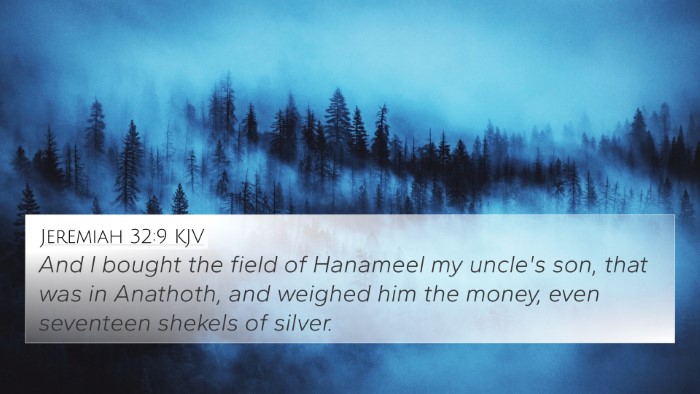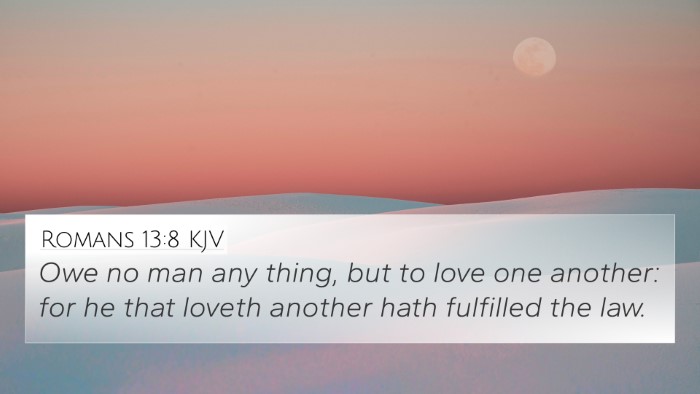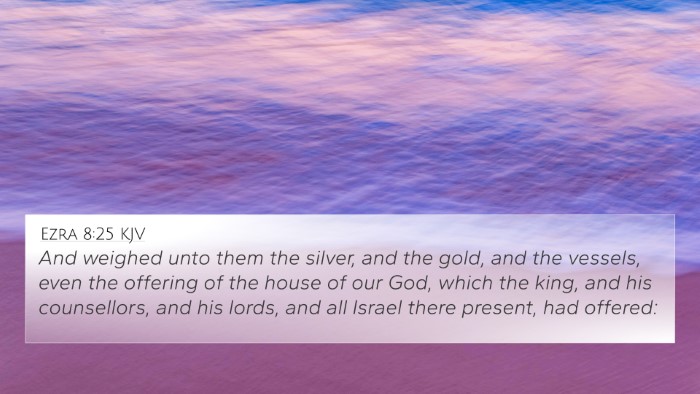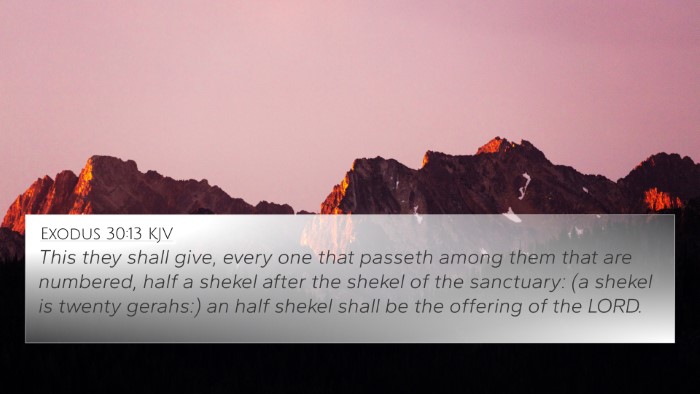Understanding Genesis 23:16
Genesis 23:16 states: "And Abraham weighed to Ephron the silver, which he had named in the audience of the Hittites, four hundred shekels of silver, current money with the merchant." This verse captures a significant moment in Abraham's life as he negotiates the purchase of a burial site for Sarah, his wife. The act of weighing the silver signifies a fair and transparent transaction, which reflects Abraham's integrity and respect for the local customs.
Interpretative Insights
From a thematic perspective, Genesis 23:16 highlights the importance of property rights and proper dealings among peoples, especially in foreign lands. It underscores financial accountability and demonstrates how Abraham, though a sojourner, sought to establish a lasting legacy for himself and his family.
Commentary Insights
-
Matthew Henry's Commentary:
Henry elaborates that the transaction involved no coercion or affliction of the local populace. Abraham’s willingness to pay a fair price signifies that God’s promises were not merely spiritual but also included physical possessions and blessings.
-
Albert Barnes' Notes:
Barnes emphasizes the significance of the "four hundred shekels" as a considerable amount, suggesting that it indicated serious intent on Abraham’s part—marking the site as a legitimate possession for his lineage.
-
Adam Clarke's Commentary:
Clarke points out the importance of using “current money” which indicates a standard valuation. It made the transaction fair and ensured that no fraud was involved, preserving the dignity of both parties.
Connections to Other Bible Verses
Genesis 23:16 connects with several other verses, illustrating broad themes of integrity in dealings and the significance of rightful ownership. Some related verses include:
- Genesis 13:15: “For all the land which you see, I give to you and your descendants forever.”
- Genesis 17:8: “Also I give to you and your descendants after you the land in which you are a stranger, all the land of Canaan, as an everlasting possession...”
- Proverbs 11:1: “Dishonest scales are an abomination to the LORD, but a just weight is His delight.”
- Leviticus 25:23: “The land shall not be sold permanently, for the land is Mine; for you are strangers and sojourners with Me.”
- Romans 12:17: “Repay no one evil for evil. Have regard for good things in the sight of all men.”
- Matthew 7:12: “Therefore, whatever you want men to do to you, do also to them...”
- Luke 16:11: “Therefore if you have not been faithful in the unrighteous mammon, who will commit to your trust the true riches?”
Thematic Connections
This passage resonates with broader Biblical themes around justice, equity, and care for the vulnerable. It reflects the necessity for believers to engage in fair practices and uphold their ethical obligations, as emphasized in the following topics:
- Ethics in Transactions: Upholding justice and honesty in financial matters.
- Legacy and Heritage: The significance of establishing a rightful place for future generations.
- Social Responsibility: Engaging positively with the surrounding community while maintaining one's integrity.
Tools for Understanding Cross-References
To further explore the connections between Genesis 23:16 and other scriptures, various tools and methods for cross-referencing can be employed:
- Bible Concordance: A reference tool that lists the occurrences of words and phrases in the Bible.
- Bible Cross-Reference Guide: A comprehensive guide providing related verses for deeper understanding.
- Cross-Reference Bible Study: Techniques to find interconnections through themes, characters, and contexts.
- How to Use Bible Cross-References: Learning strategies to identify links between verses during study or sermon preparation.
- Bible Reference Resources: Collections and materials that enable readers and scholars to explore thematic connections.
Conclusion
Genesis 23:16 stands as a reminder of the need for integrity in personal transactions. The practice of weighing out the silver serves as not only a literal transaction but symbolically represents the values of fairness and respect within relationships. Understanding this verse through the lens of cross-referencing with other scriptures enhances one’s grasp of biblical principles surrounding equity, ownership, and legacy—key components in the life of faith. By examining related verses and using tools for biblical analysis, believers can deepen their understanding of these themes, fostering a comprehensive grasp of God’s Word and its implications for life.

